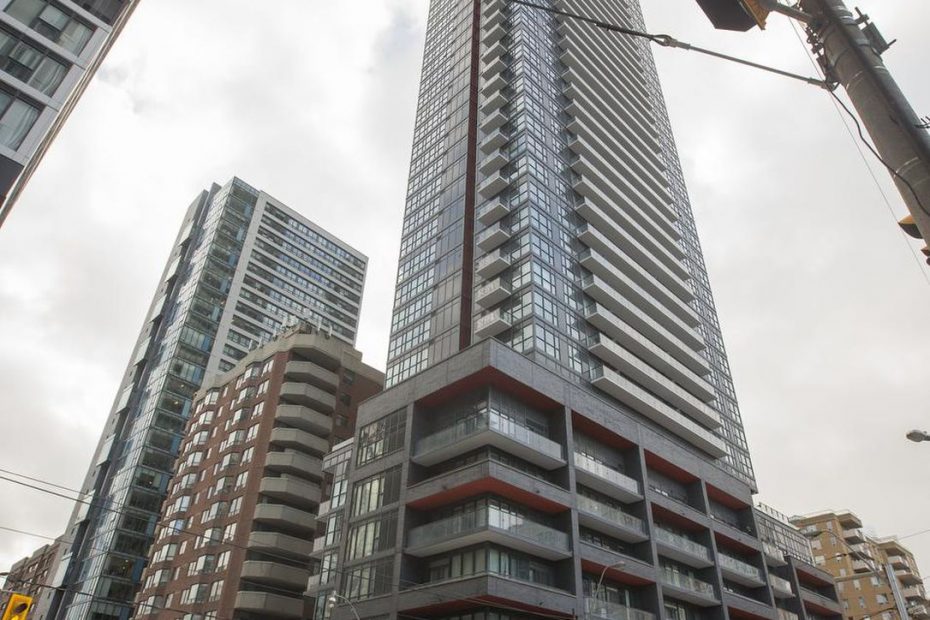When Danila Zeneli saw the listing for what would be her first home in Toronto, the condo fees for the downtown one-bedroom were just $287.34 a month.
But by 2017 when she moved in, those fees had already gone up. And in 2018 they jumped again, to $381.75, representing a more than 30 per cent increase from the cost on her listing.
“It’s obviously frustrating, because you don’t budget for that increase,” Zeneli said.
She had anticipated that fees for the 570 sq. ft. unit would rise over time, since she bought it when it was about a year old — but didn’t expect the climb would be so steep, so fast.
Many Ontario condo owners are in the same boat. In her annual report this month, Bonnie Lysyk, the province’s auditor general, found that the system doesn’t adequately protect condo owners, who often face unexpected fee hikes. She recommended the province usher in “best practices” from other jurisdictions, as well as new disclosure rules for developers.
In her case, Zeneli said the fees jumped because there was a need to increase the building’s reserve fund in 2018 — set aside for future repairs and replacements — as well as extra costs for insurance and contract services.
“It just seems like it’s poor planning,” Zeneli added. “It’s already very expensive to own a home and to purchase a home in Toronto … (Increasing fees are) an added expense that’s very hard to control — and out of pocket — because it’s not in something that your mortgage is paying for.”
Legally, developers have to provide new condo buyers with a budget estimating common expenses and fees for the first year after registration.
“However,” Lysyk wrote in her report, “some developers have omitted, understated or deferred maintenance costs to subsequent years, to understate condo fees in their budgets.”
When that happens, the condo corporation has to re-budget for excluded costs — which, had condo owners known about them, may have factored into their choice to buy in the first place. The situation can lead to notable fee jumps from a building’s first years to subsequent ones.
In a survey of 64 condo boards registered in 2016, Lysyk said 47 — or 73 per cent — reported increased fees within two years of registration; 29 reported an increase in the condo’s first year, compared with their developer’s budget. Three of 29 didn’t report an exact percentage, 15 reported a hike between 10 and 29 per cent, and 11 said fees went up more than 30 per cent.
While Zeneli did not allege her building’s developer purposely hid any costs, she was frustrated by the unexpected need to increase reserve fund contributions, among other surprise expenses.
The developer and building’s management didn’t comment on Zeneli’s case when contacted Tuesday.
Forty per cent of the boards in Lysyk’s survey said their fee increase came after a reserve fund study. More than a quarter reported hikes due to costs that had been deferred, or weren’t payable in year one.
One condo owner alleged that an elevator maintenance contract and guest suite mortgage payments weren’t included in their developer’s budget — adding payments of $15,000 and $40,000 for year two.
Looking at audited second-year financial statements for seven condo corporations registered in 2016, Lysyk said only one had a decrease from the developer’s fee projections, by 10 per cent. The other six were higher, with an average increase of 77 per cent compared to budget figures.
“The cynical part of me reads that developers are sweet-talking you on the sales room floor, and underestimating to get you in the door,” said Toronto realtor Scott Ingram.
Lysyk’s report also notes concern about unexpected fee increases affecting the resale of condos, a possibility that has been weighing on Zeneli.
Her monthly fees are currently $469.94 — and she fears she won’t be able to resell the unit, at its size, should her fees surpass $500.
“I wouldn’t want to buy a condo that has that much (of a) maintenance fee,” Zeneli said.
Other provinces have introduced rules to protect new-build condo owners from unexpected fee hikes — from having developers place money in a trust that the condo corporation can access if expenses are understated, to having penalties that increase depending on severity. Lysyk offered those as examples of “best practices” that she would like to see introduced in Ontario.
A review of Ontario’s Condominium Act in 2012-13 resulted in several changes around unexpected fee increases, Lysyk noted. But several of those changes — from extending the timeline for condo corporations to make claims against their developer for extra costs, to requiring developers disclose expenses they anticipate will arise after year one — hadn’t been enacted by the province at the time of her audit.
Asked about those suggested changes, a spokesperson for Ontario’s Ministry of Government Consumer Services said the government considered enacting them based on the “evolving needs” of the condo sector, while considering the possible impacts of a change on things like affordability.
Loading…
Loading…Loading…Loading…Loading…Loading…
The government recently enacted one of the changes from that review, the spokesperson said. As of January, developers in Ontario will have to provide a “plain language guide” to new and pre-construction buyers to provide them with extra information.
Zeneli said she’s struggled to even know where to get information about the fee increases in her first home — and what is or isn’t allowed.
“There definitely needs to be something to protect homeowners,” she said. “Because it’s the biggest expense that we’re going to have in our lives at this point.”
JOIN THE CONVERSATION
Q:
Have you been surprised by condo fee increases? Share your thoughts.
